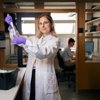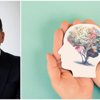Fritextsökning
Artiklar per år
Innehållstyper
-

The vaccine has saved 94 million lives – but measles is spreading again
A disease we once believed belonged to the past is now resurging in both Europe and the United States. In the shadow of growing skepticism and declining vaccination coverage, measles – which has claimed millions of lives throughout history – is making a comeback.
-

Swedish life science is growing – but capital is not keeping up
The number of employees and companies in Swedish life science is increasing and the sector is more equal than many other sectors. But investments in unlisted companies are weak.
-

Falska studiedeltagare – ett växande hot mot forskningen
Digital rekrytering blir allt vanligare vid hälsorelaterad forskning, men samtidigt ökar problemet med falska deltagare. Det hotar både resultatens tillförlitlighet och forskningens trovärdighet. Nu efterlyser forskare tydligare riktlinjer och större metodtransparens.
-

Swedish team tests Alzheimer antibody for brain imaging
Recent breakthroughs in Alzheimer’s treatment have increased the need for precise diagnostics in the field. Researchers in Uppsala are working to develop improved methods for both identifying suitable patients and ensuring they receive the right therapy.
-

How the Nobel discovery is used in drug development
Regulatory T cells keep the immune system in check, a discovery now awarded the 2025 Nobel Prize in Physiology or Medicine. Qiang Pan Hammarström explains how this finding is being applied in today’s drug development, and what challenges remain.
-

Many discontinue obesity medication – new study highlights the reasons
A new study maps out the most common reasons why patients choose to stop taking obesity medication prematurely. “Obesity medication discontinuation reverses health benefits and prompts weight regain in most individuals,” says Hamlet Gasoyan, one of the researchers behind the new study, in an interview with Life Science Sweden.
-

The top five most expensive drugs in 2025
New advanced therapeutic medicines are reaching the market, but their price tags remain exceptionally high. This year’s ranking of the most expensive drugs in the US reveals a common denominator: all are gene therapies administered as one-time treatments.
-

Novo Nordisk appoints Mike Doustdar as new CEO
The Danish pharmaceutical giant Novo Nordisk has appointed Mike Doustdar as its new CEO. At the same time, the company announced it was lowering its forecasts – which caused the stock to drop sharply on Wednesday.
-

FDA approves Gilead’s HIV injection: “Historic day”
Gilead Sciences’ preventive HIV drug, lenacapavir, was approved on Wednesday by the U.S. Food and Drug Administration (FDA), sparking new hope for finally breaking the transmission chain of a virus that affects 1.3 million people annually.
-

The race between new alzheimer’s drugs Kisunla and Leqembi heats up
Kisunla or Leqembi? The rivalry between Eli Lilly and Bioarctic is intensifying. Where one drug gains approval, the other falls behind. Here's a look at the markets where these competing treatments are currently available.
-

Trump in new push to lower drug prices
U.S. President Donald Trump announced on Sunday that he plans to sign an executive order to lower the cost of prescription drugs to the same levels paid in other wealthy countries — something he claims could reduce prices by 30 to 80 percent.
-

New moves around Nykode's management – withdrawal of resignations
Norwegian Nykode Therapeutics is reinstating members of the management team who previously announced their resignations.
-

An organ seldom in the spotlight – but utterly vital
The kidneys consist of more than 40 types of cells and have more functions in the body than most people know. Julie Williams leads AstraZeneca’s work in preclinical research about kidney diseases. “They are probably one of the most complicated organs in the body, and I like a challenge”, she says.
-

Cancer researcher: “We can do better and reduce suffering”
Lund University researcher Catharina Hagerling is developing innovative methods to understand metastatic cancer, aiming to create more targeted treatments for patients with disseminated cancer.
-

Career coach on salaries: “There is no right or wrong”
What is a reasonable salary for my job? It's a question we all ask ourselves. But how important is a higher salary really? Career coach Tina Persson believes this is an important consideration.
-

A tiny animal with great importance
From the mythical Ganges River to the less sacred, but considerably cleaner waters in KI's aquariums in Solna. The little zebrafish has made an unconscious career – as an increasingly important model organism in medical research.
-

Who pays for Rebecca Doe – and all of us?
Anna Törner on how easily we get used to the idea that healthcare is free - when it really is about how and who pays for it
-

Health politician Lina Nordquist: ”I find it hard to be idle”
She is the pharmacist and researcher who grew tired of the breakthroughs that never materialised and knowledge that never seemed to reach patients, so she decided to make a change from within. Life Science Sweden meets Lina Nordquist, Member of Parliament for the Liberals and their spokesperson on healthcare policy, to have a conversation about reality, politics, and the need for writing.
-

Björn Arvidsson: ”We must raise our gaze to find the answers of the future”
A system approach isn't just about understanding complexity – it's about making better decisions. By seeing ourselves as part of larger systems, we can better anticipate the consequences of our actions, writes Björn Arvidsson in a column.
-

AI detects tumor disease – via voice recording
A short voice recording along with facial images – both analyzed with an AI algorithm – can make it possible to detect the rare tumour disease acromegaly and initiate treatment at an early stage.
-

Anna Törner: Vem betalar för Rebecca Doe – och alla oss andra?
Det lätt att vänja sig vid tanken att vård och läkemedel är gratis, när det egentligen handlar om hur och vem som betalar. Det skriver Anna Törner i en krönika.
-

Life science trends 2025 – Neurology
New Alzheimer's drugs are beginning to be used in Sweden, more deals in the neuro sector are expected, and tools for deliver active substances across the blood-brain barrier are being developed. In addition, a new type of drug for MS is making its debut. This part of trend insights on life science 2025 is about neurology.
-

Digitala tvillingar blir verklighet i primärvården – ”Som en tamagotchi”
Att möta sin egen digitala tvilling och se vad som händer med kroppen om man slutar röka eller ändrar diet? Det ska testas vid besök på vårdcentraler i Östergötland.
-

The business coach: “We need to learn from our mistakes”
The past year has been challenging for many biotech companies, with several comapanies facing financial stress and bankruptcy. To understand how entrepreneurs can navigate these tough times, Life Science Sweden spoke to Pia Keyser, a business coach at Umeå Biotech Incubator, who has worked with many companies in the industry.